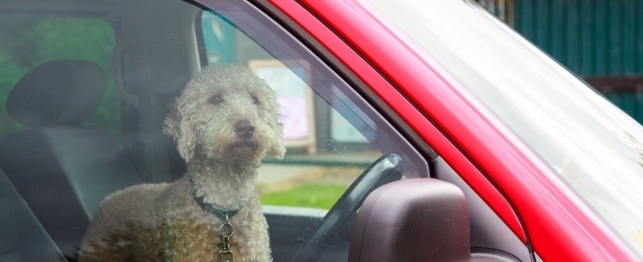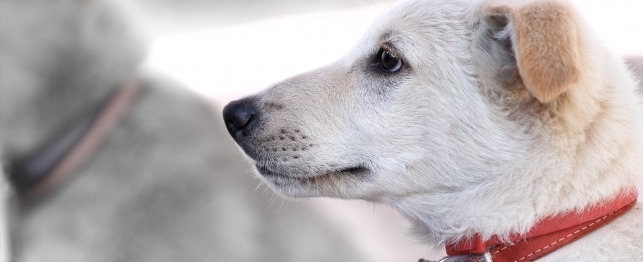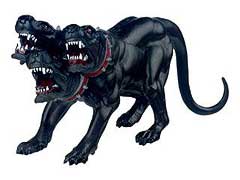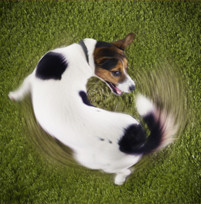While dogs are better-known as man's best friend, you, as the dog owner, are reliable for the training of your dog, if you require him to live up to that lofty moniker. When you bring that cute puppy home, he is a rough-and-tumble and loving character. What he lacks is discipline and that is where you come in. You need to fulfill your end of the bargain.
Altogether dogs are normally the most adorable of pets, inherently loyal, fun loving, comforting and always entertaining. Yet, you have to face the fact that dogs are three years old standing in terms of discipline. That is why a training program early is crucial. Dogs utterly love their owners affection and like to please them. It is up to you to make your puppy recognise what is expected of him in the way he behaves. In their view, life is in a endless state of fun. They have no idea what is good or bad conduct, unless you let them know what is. One of the most everyday dog behaviour problems you will have to put a stop to is the biting pup syndrome.
Pups like to chew on everything, as any dog owner will tell you. The biting puppy may have a nice time chewing on your carpet slippers, a book or a tasty bone. He should be able to enjoy any of his bones, but you need to provide the guidance to their behavior, so it keeps your pet away from your carpet slippers. They do not know that there is a difference, unless you let them know. If you let your pet do as they want, you may soon have an irreverent biting puppy, with everything in their approved list of biting behavior. If you are an irresponsible dog owner you will have no one to blame but yourself, when he graduates to bite you, your children or your neighbor every time he wants to. A biting pup that is unrestrained, will become a dog that bites, landing you both in a lot of problems.
Just like kids, dogs require behavioural guidance. Getting a biting puppy to understand the limitations is actually quite simple. Where do you draw the line? Biting food items and bones is a good rule of thumb. Anything else is a deal breaker. If you allow him to bite an old, worn out pair of carpet slippers, you are giving him a license to bite and chew up a variety of household items. He cannot distinguish between things which are OK to bite and those which are not.
Pups that are teething are likely to be biting puppies. However, you might think its cute with the decimation role he played the day before, but you have to put your foot down. Dogs only understand the rules if they are absolute. Correct or not is OK. The punishment should as well fit the crime. In the case of inanimate objects, a paper rolled up with a sharp noise report, should get your message across.
You must hold in reserve the most serious punishment for infractions which involve your pup biting a human. No matter how fun loving, lacking in malice or whatever, a puppy must be deterred from the idea that biting a human is acceptable. Let's say your daughter decides to share some fat scraps from her dinner plate with her pup. He is certainly eager to share in this largess, inadvertently biting her in his haste. While he means no harm, if you let this pass undisciplined, you are giving him a green light for behavior that spells trouble down the road.
In order to cut off immediately and unequivocally puppy biting behaviour, you will have to come down on him hard. A strong blow to the nose, the removal of the food and a dog version of time out is what we have to impose. Put on his leash and give him a taste of isolation on his own, along with a "bad dog." This is the language and action that he can understand. He knows that his conduct resulted in a punishment, the loss of the desired item and isolation from his family.
Utilising this strategy, you can quickly and easily train your biting puppy right out of his bad habit. By the time he's six months old, you will have a permanent toddler dog who knows his limits!

 Keep Your Dog Safe in the Summer Heat
Keep Your Dog Safe in the Summer Heat
Keep Your Dog Safe in the Summer Heat
Keep Your Dog Safe in the Summer Heat
 Puppy Collars - Choosing a Collar for Your Puppy
Puppy Collars - Choosing a Collar for Your Pu
Puppy Collars - Choosing a Collar for Your Puppy
Puppy Collars - Choosing a Collar for Your Pu
 Dog Distemper Treatment – What Can I Do To Help My Dog?
What i
Dog Distemper Treatment – What Can I Do To Help My Dog?
What i
 Why Do Dogs Bring Pieces of their Food Back to Owners?
I have a 3 year old Shih Tzu and an
Why Do Dogs Bring Pieces of their Food Back to Owners?
I have a 3 year old Shih Tzu and an
 How to Have a Trauma-Free Vet Visit For Your Dog
How to Have a Trauma-Free Vet Visit For Your
How to Have a Trauma-Free Vet Visit For Your Dog
How to Have a Trauma-Free Vet Visit For Your